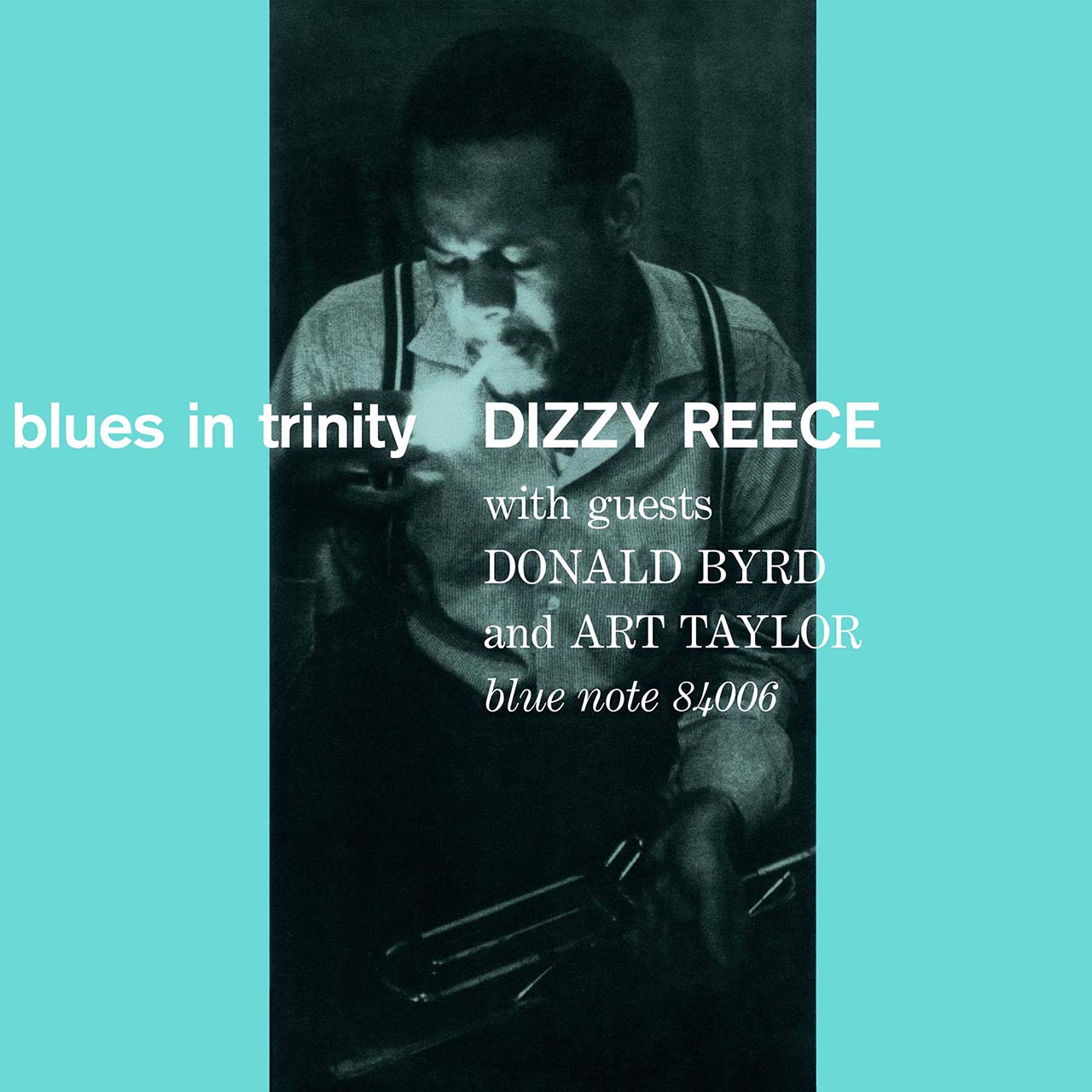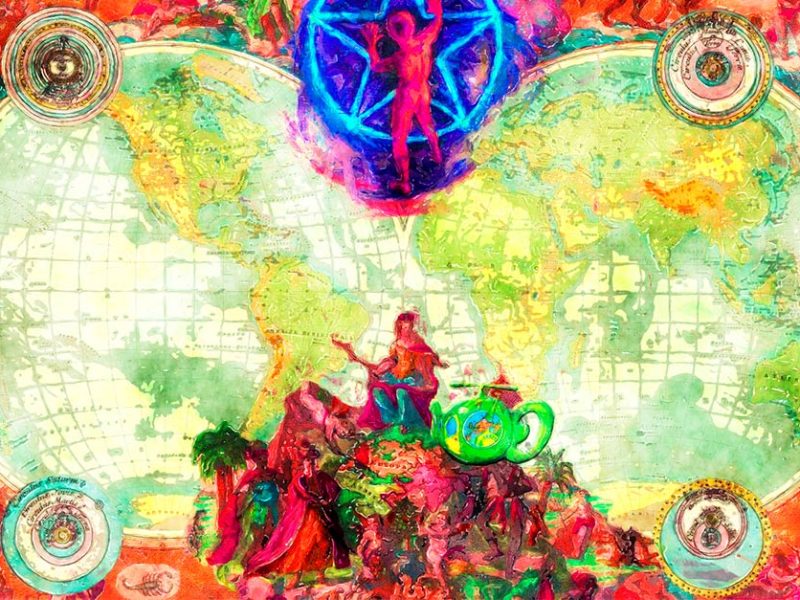“Get him to come to New York and I’ll sign him.” Those were Blue Note boss Alfred Lion’s words to London record producer Tony Hall in 1958. He was referring to Hall’s protege, Jamaican trumpeter Dizzy Reece, who had been impressing listeners with recordings for British indie label Tempo. Dazzled by the swagger of Reece’s darting horn lines, Lion approved Hall using Blue Note musicians Donald Byrd and Art Taylor (then on a European tour) as sidemen for a London recording session. What resulted was Blues In Trinity: a classic example of hard bop and an overlooked gem in Blue Note’s catalog.
A teenage trumpet prodigy raised on calypso and jazz, Alphonso “Dizzy” Reece was born in Kingston, Jamaica, in 1931. With his mother’s permission, he left home at 17 aboard the ocean liner Empire Windrush destined for London. “Modern jazz and bebop were just starting there,” recalled Reece in 2019, who was eager to join the jazz revolution. He brushed shoulders with American jazz royalty in Paris at the city’s International Jazz Festival a year later. “Charlie Parker, Miles Davis, Kenny Clarke all played,” he remembered. “That was my initiation into the modern jazz scene.”
Order Dizzy Reece’s Blues in Trinity on vinyl now.
Reece honed his trumpet skills by playing alongside well-known American musicians like Don Byas and Kenny Clarke in Europe before returning to London where he began his recording career at Tempo. By 1958, Reece’s music had even caught the ear of an impressed Miles Davis. Donald Byrd and Art Taylor knew all about Reece. “We heard about Dizzy through Miles and Sonny (Rollins),” recalled the trumpeter, “so we were looking out for him.” When the Americans arrived in London from Paris, Hall took them to Decca Studios where tenor saxophonist Tubby Hayes together with fellow Londoner, pianist Terry Shannon, and the Canadian double bassist, Lloyd Thompson, were waiting for them. It was a Saturday and the studio was closed but Hall gained entry. “I had to bribe the caretaker to let us in,” laughed the producer in 2012. “We did the whole session in about four and a half hours.”
The ad hoc group cut six tunes; four Reece originals, and two covers. The album began with the lively Reece-penned title number, a blues-tinged experiment in polyrhythms. “The bass plays double-time,” explained the trumpeter in the album’s liner notes. “The drums are three times up. So you get a one-two-three feeling. The soloist can choose his tempo and the piano has a lot of freedom.”
Byrd guested on two tracks, jousting with Reece and Hayes on the throbbing hard bop groove “Close-Up” and the more urgent “Shepherd’s Serenade,” which proceeded at a frantic pace. The covers, both ballads, were inspired versions of “I Had The Craziest Dream,” a 1942 US pop hit for bandleader Harry James, and a softly sensuous take on Thelonious Monk’s modern jazz classic, the haunting “‘Round About Midnight.” On both, Reece unveiled his softer, lyrical side.
Regarded as an outlier in Blue Note’s Alfred Lion-era catalog because it was recorded outside the US, Blues In Trinity stands up alongside the label’s Rudy Van Gelder-recorded LPs as a hard bop classic. “It’s a terrific record and has stood the test of time,” Hall told Record Collector in 2012. Seven years later, Reece, then 88, praised Hall’s contribution. “I always appreciated being with Tony as a producer,” he said of his late friend, who died in 2019 aged 91. “He was pretty good at that. Blues In Trinity was the best thing he ever did. That record immortalized him.”
The album also stands as a monument to Reece’s formidable talent. Although he brought an original concept to jazz trumpet playing, one that Tony Hall thought influenced Miles Davis, he was largely overshadowed by his US counterparts. But Blues In Trinity, the first of his four Blue Note albums, offers a vivid reminder of the Jamaican’s underappreciated virtuosity.
Order Dizzy Reece’s Blues in Trinity on vinyl now.



